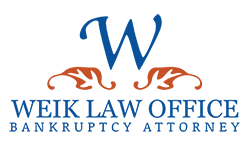GET HELP TODAY

When filing for bankruptcy, some properties are protected or exempted from liquidation. It is your responsibility to ask bankruptcy lawyers in Raleigh, NC about the exemptions that apply to your case. For Chapter 7 bankruptcy, these exemptions determine the property you can keep. In Chapter 13, the exemptions determine the amount you will pay creditors via your bankruptcy plan.
States with Bankruptcy Exemptions
Each state has a specific bankruptcy exemption system. Under the Bankruptcy Code enacted in 1978, each state has the right to choose which exemption system to implement. The first option allows residents to use the state exemption. Meanwhile, the second option allows residents to choose between the federal exemption scheme (which was created by Congress) and the state exemption system.
Below are the 17 states which allow using either federal or state exemptions:
• Alaska
• Arkansas
• Connecticut
• District of Columbia
• Hawaii
• Massachusetts
• Michigan
• Minnesota
• New Hampshire
• New Jersey
• New Mexico
• Pennsylvania
• Rhode Island
• Texas
• Vermont
• Washington
• Wisconsin
If you will notice, North Carolina is not included on this list. Therefore, when filing for Chapter 7 bankruptcy in Raleigh, only state exemptions can be used.
When to Use State Exemptions
The state exemption depends on your permanent residence (or domicile) for the past two years or 730 days. Below are the detailed rules in using the exemption:
• If your domicile is in your current state for 730 days/2 years, you can use the state exemptions (or federal exemptions if your state allows it).
• If you have permanently resided in a state for more than 91 days but less than 730 days, use the exemptions of the state you were domiciled longest in the 180 days before the 730-day/2-year period of filing.
• If you have permanently resided in a state for less than 91 days, you can choose to file in the state you previously lived in, or wait until 91 days to file in your current state. The state you choose will determine the applicable exemptions for your case.
• If you file in a state where you can choose between the federal and state bankruptcy exemptions, you can use the federal exemptions in spite of the length of your domicile.
• If you cannot use any state’s exemption system, you can use the federal exemptions regardless of their availability.
For example, Anna has only lived in North Carolina (NC) for 629 days, but was a permanent resident of New York (NY) for 207 days prior. Before that, she was a permanent resident of Virginia (VA) for 250 days. Since 101 of her NY residency days belong to the 730-day/2-day period of filing, these are subtracted from her total residency period (207-101), leaving us with 106 days in NY. Meanwhile, the days within the 180-day period in VA (250 -180) is only 70 days. Under the law, the state exemptions of NY apply to her bankruptcy.
Use the Exemptions to Your Advantage
With knowledge of the bankruptcy exemptions, you can now file for the bankruptcy that is best suited to you. With Weik Law Office, you have a trusted bankruptcy lawyer in Raleigh ready to help you in filing for your bankruptcy cases. Call Weik Law office today at 919-845-7877 for a free consultation, and set up a time to speak with one of our professionals.
